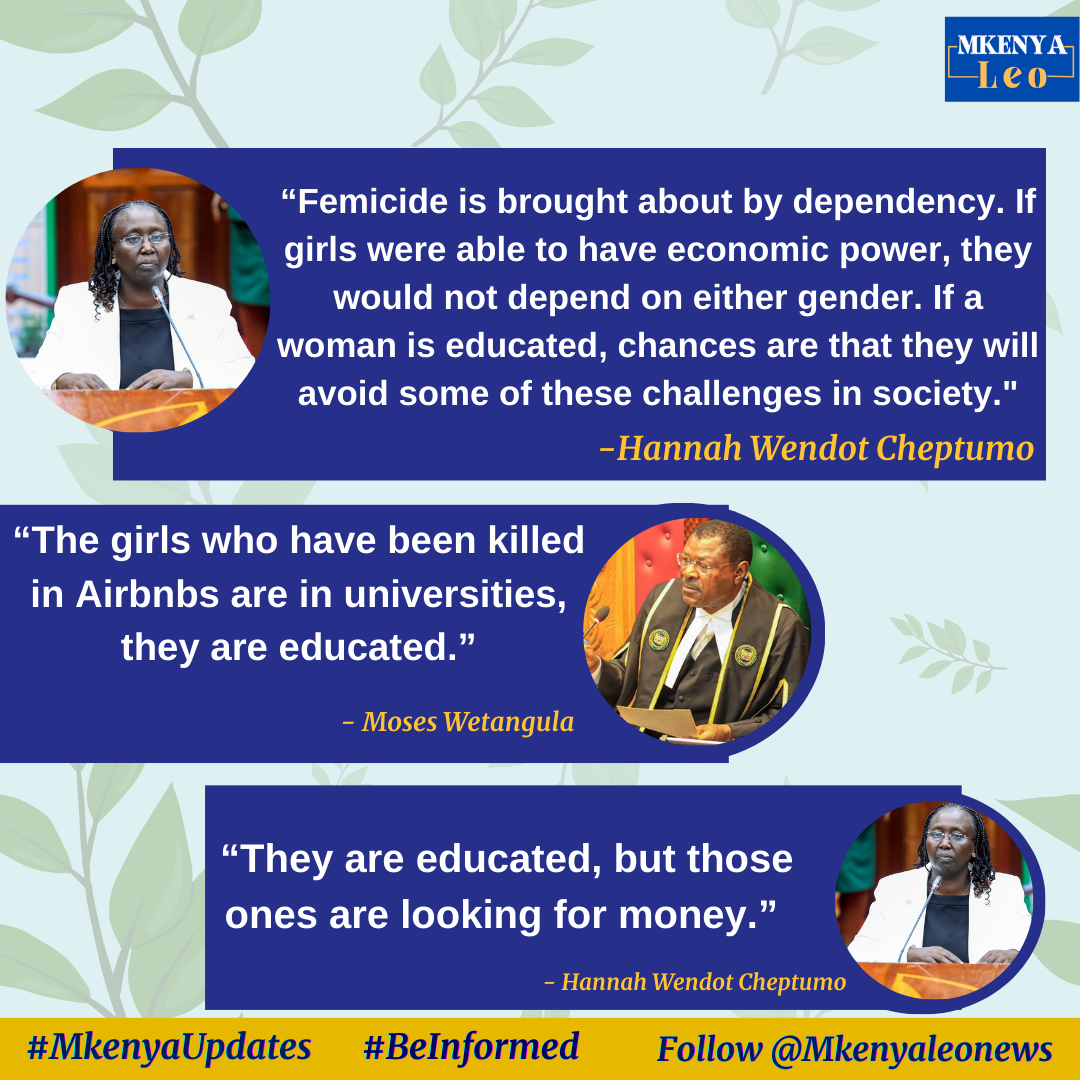Hannah Wendot Cheptumo, the nominee for Cabinet Secretary for Gender, Culture, Arts and Heritage, has sparked public debate after stating that the rise in femicide cases in Kenya is closely tied to women’s financial dependency and pursuit of money through relationships.
Appearing before the Committee on Appointments on Monday, Wendot emphasized that lack of financial empowerment among women is a key driver of femicide. She argued that with education and economic independence, women would be less vulnerable to such tragic outcomes.
“Femicide is brought about by dependency. If girls were able to have economic power, they would not depend on either gender,” Wendot told the committee. “If a woman is educated, chances are that they will avoid some of these challenges in society.”
Her remarks came under scrutiny from committee members, with National Assembly Speaker Moses Wetangula, who chaired the session, pointing out that many recent femicide victims were educated and university students.
“The girls who have been killed in Airbnbs are in universities, they are educated,” said Wetangula, challenging the notion that lack of education is the core issue.
In response, Wendot maintained her stance, clarifying that despite being educated, many of these women may still be financially dependent or in pursuit of material support.
“They are educated, but those ones are looking for money,” she stated.

Wendot’s comments have ignited mixed reactions across the public and social media, with some supporting her focus on financial empowerment for women, while others argue that her statements may shift blame onto victims and oversimplify a complex issue rooted in gender-based violence.
Her vetting comes at a time when Kenya has seen a worrying trend of femicide cases, with growing calls for the government to take stronger action in protecting women and addressing systemic gender violence.
Femicide Statistics in Kenya
According to a 2024 report by the Kenya National Bureau of Statistics (KNBS) and grassroots organizations tracking gender-based violence, over 80 cases of femicide were reported in Kenya in 2023 alone. Of these, a significant number involved young women between the ages of 18 and 30, with many of the incidents occurring in urban residential settings such as rental apartments and short-stay accommodations like Airbnbs.
In January 2024 alone, at least 10 women were reported to have been killed under circumstances that pointed to gender-based violence, sparking nationwide protests and online campaigns demanding justice and policy action.
Advocacy groups continue to call for a comprehensive national strategy to address femicide, including reforms in the justice system, education on healthy relationships, and increased funding for women’s shelters and support services.











































